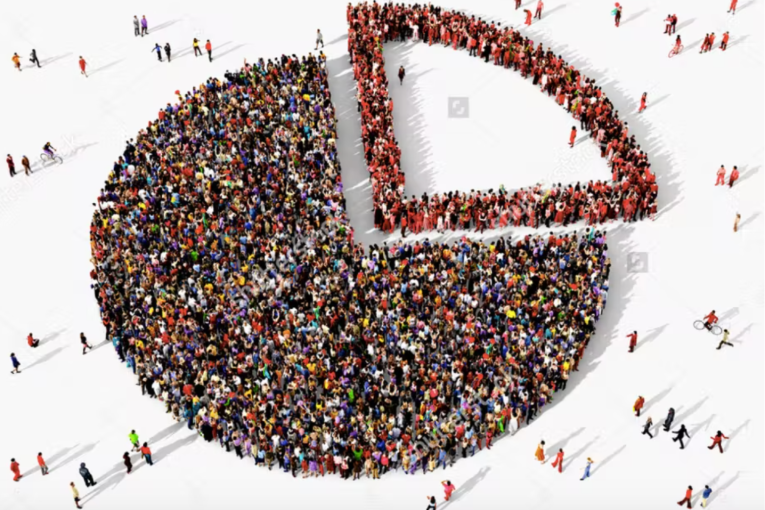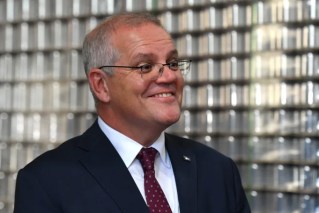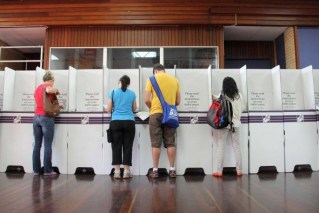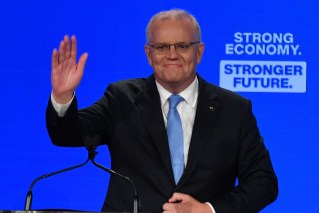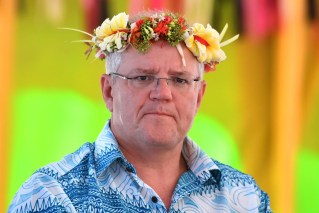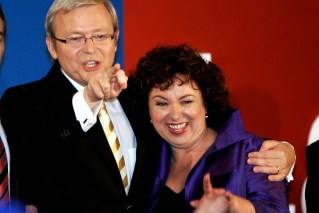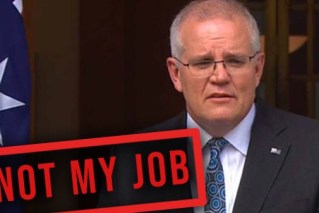When it comes to political ads, the LNP has just thrown out the rule book
The LNP has produced an ad that should be on the ABC’s Gruen Nation. Dennis Atkins reckons it might get a very good reception.

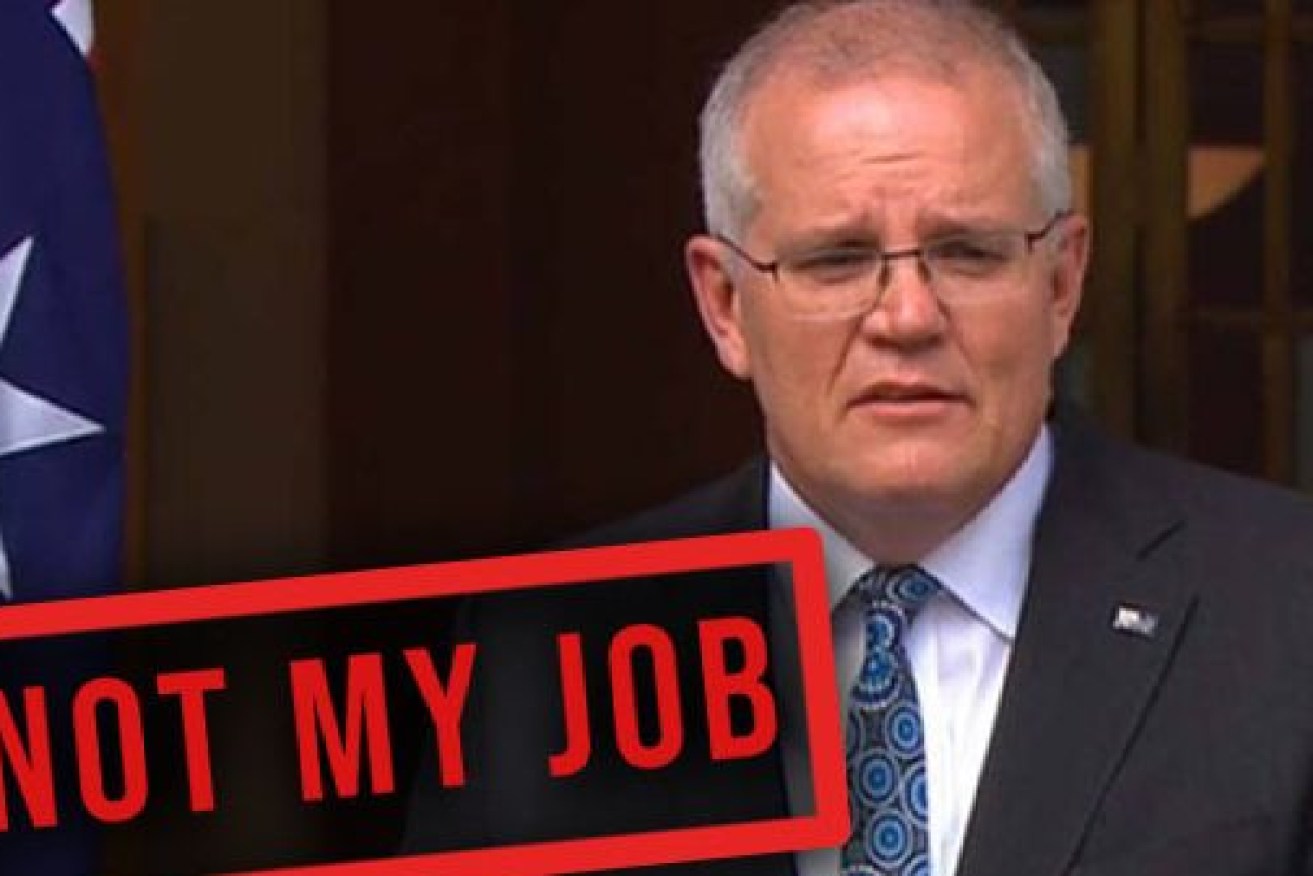
The federal government spent $200m on advertising.
If anyone doubts the Liberals are panicking just a bit, they should have a look at the email the Brisbane LNP headquarters sent out to supporters at 9pm on Tuesday.
Lincoln Folo, the Queensland state director, transmitted a new LNP ad aimed at what he called “Labor’s lies” at the heart of the ALP campaign.
It’s a pretty simple, cut and paste ad that takes a central feature of one of Labor’s highest rotation spots which finishes with Scott Morrison saying “that’s not my job”.
This is a blunt attack by Labor that Morrison always goes missing and when he’s called out, he protests it’s not his job.
There are three examples in the ad and the LNP response seeks to put them in context. If this election campaign was an episode of the ABC advertising comedy show Gruen Nation it would win an award for a special kind of failure.
The Labor ad is blunt and, as the sensitivity of Folo’s response shows, it’s hitting where it hurts.
To respond to the ad by making another one that highlights the original ad and gives it more exposure breaks every rule of political communications. Don’t admit your opponents are making a point that is working with a target audience and don’t give the original message more air time.
During the 2007 election campaign Labor ran heavily with a statement from John Howard that “working families have never had it so good” – putting it in ads and driving it around suburbs on truck billboards. The then prime minister was angry, claiming he’d been taken out of context.
Howard wanted to rebut it but was talked out of that approach, told by his advisers to let it go.
Folo and his ad makers are protesting Labor’s claims Morrison keeps saying this and that isn’t his job come from statements that don’t fit the charge. Like Howard, he’s been taken out of context, they say.
This is the basis of the new ad – which is being used to urge people to pony up some cash and to circulate the ad promoting the Labor ad.
During campaigns ads are often made that never see the light of day for very good reasons. This latest LNP offering should have been left in the “yeah, nah” pile.
The other interesting aspect of Folo’s email is the P.S. at the end. It reads: “Want to make a greater impact? DONATE to our campaign fighting fund to help stop Labor’s lies.”
According to people close to the LNP campaign, the fundraising task is a lot more difficult this year than it was in 2019.
A couple of reasons are offered. The general business climate after two years of the pandemic has left many regular donors without much discretionary cash to hand over to their favoured party.
Many of these donors have given to the Queensland LNP twice since the last federal poll, for the successful defence of the Brisbane City Council administration and to the losing campaign against Annastacia Palaszczuk in late 2020.
On top of this, a lot of businesses can sense there is a possible, perhaps likely, change of government in the wind. None of these things is conducive to filling the fundraising hat when it’s passed around.
As all this swirls around, Australia’s biggest and best known polling company YouGov has dropped a container load of data, based on surveys of almost 19,000 people across all 151 House of Representatives electorates.
There is a lot of controversy about the methodology used – a model called MRP or multilevel regression with post-stratification.
Anyone who isn’t a qualified statistician shouldn’t go near trying to explain it but apparently it’s a common way of testing opinion used in many circumstances.
When it’s used to identify political opinion and suggest election outcomes, MRP is very controversial. It’s safe to say, for most electorates it doesn’t tell us that much and in those seats where factors are more complicated – the presence of an independent, teal or otherwise, in particular – the job of getting it right is equally complex.
YouGov may have found the secret sauce but we won’t know until after May 21. If YouGov have scored, they’ll be hailed as geniuses.
As YouGov boss Cameron White says in The Australian today, the mega poll is not a crystal ball.
“(The poll) is not a prediction about the future but a measurement at the time it is taken,” says Cameron. “Like all estimates of public opinion, there are uncertainties.”
Here’s one tip: for most of those 151 electorates, the best way to pick the outcome on Saturday week is to go to the Australian Electoral Commission website and look at what happened in 2019.
In all but about 20 seats the outcome this year will be the same, within the margin of error.
